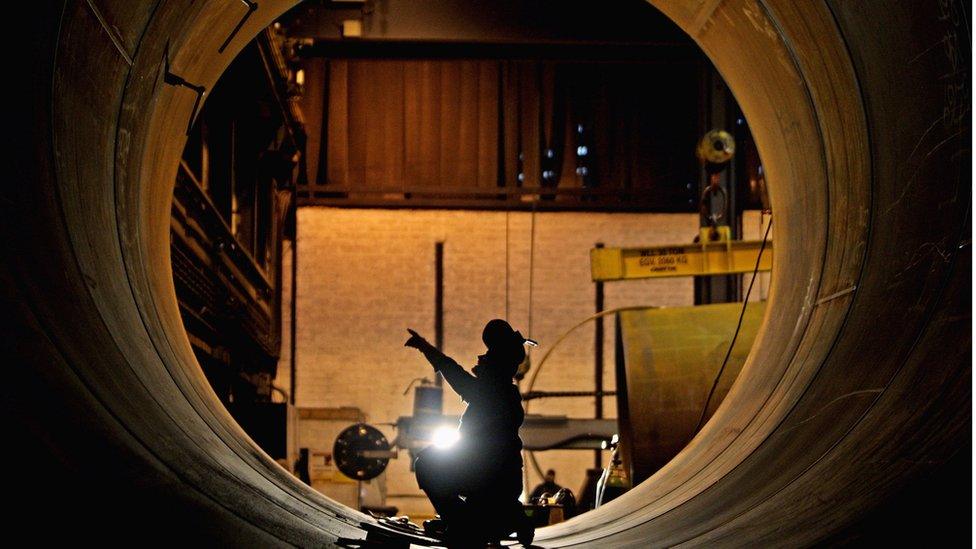Britain’s wealth problem – we don’t create enough of it
- Published

Today's productivity figures are bad to the point of shocking.
A fall of 0.5% in the first three months of the year takes the UK economy's ability to create wealth back below the level of 2007.
If an economy cannot create wealth efficiently, then the debates about government spending, public sector pay and austerity become all the harder.
If an economy cannot create wealth, then tax receipts - the mainstay of government income - weaken.
There is plenty of data which suggest that the government's inability to "balance the books" is not because targets to reduce spending have been missed.
Rather, it is down to disappointing tax income because economic growth is weak.
Poor business performance and falling real incomes appear to be leading to a stagnating economy.
'Very low paid jobs'
How motivating is work when at the end of the year you are earning, given the impact of higher inflation, less than you were at the beginning of the year?
Demotivated workforces tend not to work more efficiently.
And if productivity is falling and labour costs are rising, as they are, then that leads to a profits squeeze.
And means that the prospect of pay rises recedes - creating something of a vicious circle and going someway to explaining why wage growth is falling.
This is Philip Hammond's headache.
I interviewed Lord Adair Turner, the former head of the Low Pay Commission, yesterday and he made a rather startling - but correct - admission.
"The UK over the last 10 years has created a lot of jobs, but today real wages are below where they were in 2007," he said.
"That is not the capitalist system delivering its promise that over a decade or so it will raise all boats, and it is a very fundamental issue.
"There is something about the economy which - left to itself - will proliferate very, very low paid jobs."
Until that is solved, our productivity problem, our wealth problem, will continue.
- Published3 July 2017
- Published27 June 2017